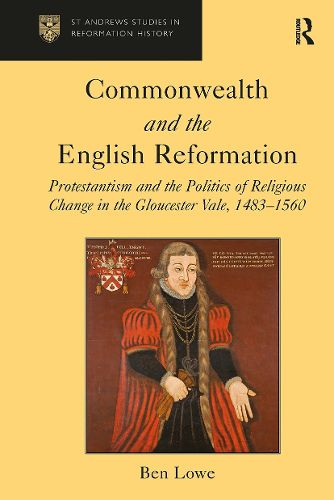Readings Newsletter
Become a Readings Member to make your shopping experience even easier.
Sign in or sign up for free!
You’re not far away from qualifying for FREE standard shipping within Australia
You’ve qualified for FREE standard shipping within Australia
The cart is loading…






Whilst much recent research has dealt with the popular response to the religious change ushered in during the mid-Tudor period, this book focuses not just on the response to broad liturgical and doctrinal change, but also looks at how theological and reform messages could be utilized among local leaders and civic elites. It is this cohort that has often been neglected in previous efforts to ascertain the often elusive position of the common woman or man. Using the Vale of Gloucester as a case study, the book refocuses attention onto the concept of "commonwealth" and links it to a gradual, but long-standing dissatisfaction with local religious houses. It shows how monasteries, endowed initially out of the charitable impulses of elites, increasingly came to depend on lay stewards to remain viable. During the economic downturn of the mid-Tudor period, when urban and landed elites refocused their attention on restoring the commonwealth which they believed had broken down, they increasingly viewed the charity offered by religious houses as insufficient to meet the local needs. In such a climate the Protestant social gospel seemed to provide a valid alternative to which many people gravitated. Holding to scrutiny the revisionist revolution of the past twenty years, the book reopens debate and challenges conventional thinking about the ways the traditional church lost influence in the late middle ages, positing the idea that the problems with the religious houses were not just the creation of the reformers but had rather a long history. In so doing it offers a more complete picture of reform that goes beyond head-counting by looking at the political relationships and how they were affected by religious ideas to bring about change.
$9.00 standard shipping within Australia
FREE standard shipping within Australia for orders over $100.00
Express & International shipping calculated at checkout
Whilst much recent research has dealt with the popular response to the religious change ushered in during the mid-Tudor period, this book focuses not just on the response to broad liturgical and doctrinal change, but also looks at how theological and reform messages could be utilized among local leaders and civic elites. It is this cohort that has often been neglected in previous efforts to ascertain the often elusive position of the common woman or man. Using the Vale of Gloucester as a case study, the book refocuses attention onto the concept of "commonwealth" and links it to a gradual, but long-standing dissatisfaction with local religious houses. It shows how monasteries, endowed initially out of the charitable impulses of elites, increasingly came to depend on lay stewards to remain viable. During the economic downturn of the mid-Tudor period, when urban and landed elites refocused their attention on restoring the commonwealth which they believed had broken down, they increasingly viewed the charity offered by religious houses as insufficient to meet the local needs. In such a climate the Protestant social gospel seemed to provide a valid alternative to which many people gravitated. Holding to scrutiny the revisionist revolution of the past twenty years, the book reopens debate and challenges conventional thinking about the ways the traditional church lost influence in the late middle ages, positing the idea that the problems with the religious houses were not just the creation of the reformers but had rather a long history. In so doing it offers a more complete picture of reform that goes beyond head-counting by looking at the political relationships and how they were affected by religious ideas to bring about change.